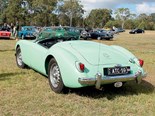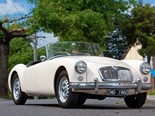1961 MGA - Reader Resto











































|

|

|

|

|

|

|

|

|

|

|

|

|

|

|

|

|

|

|

|

|
Though he had one in the shed many years ago, for this owner an MGA represented unfinished business
There was an MX-5 sitting in the shed, before this car, and I effectively swapped one for the other. I’ve had an MGA before, years ago, from when I was around 20 through to about 35.
The MX-5 was absolutely brilliant and did everything better than this car ever will, but it just lacked the character of the MGA. It lacked the smell of crankcase fumes and just burned oil generally! So when I had the opportunity to buy this from my brother, we exchanged cars and a bag of money.
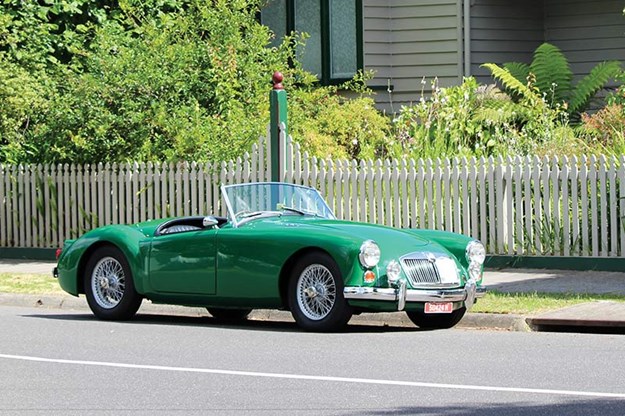
It was pretty rough when I got it, and he was happy to see it go to me because he figured I’d eventually do it up. It’s taken a long time (about four to five years) and I’ve tackled it as a rolling restoration. We’ve done a fair bit in that time, including paint, interior, engine and transmission. It’s been done in a staggered way, so I’ve been able to drive it as well.
The engine has been bored out to 1800. It was much cheaper to buy old stock standard-sized MGB pistons, because MGB owners don’t want standard pistons – they want oversized. I took the cam up to Wade, who created a warmish street grind.
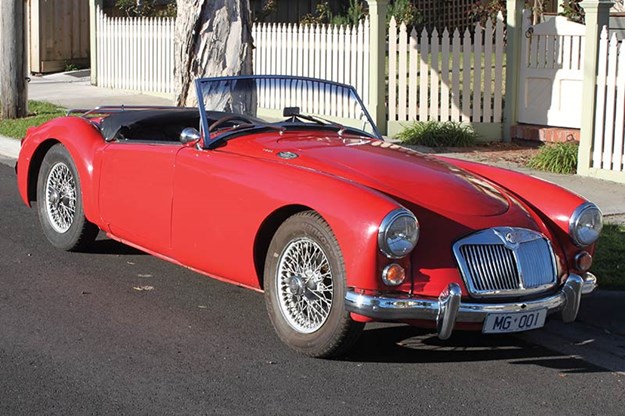
The current car before it got a fresh coat of paint. It looked okay, but hid a few surprises
It’s currently running the stock inch-and-a-half twin SU carburetors, which work okay. I probably should have converted it over to the MGB’s larger inch-and-three-quarters. Instead, we’re going to try a 40mm DHLA Dellorto side-draught, partly because I enjoy tinkering, and I have a friend who’s pretty good with setting them up.
We’re currently running a Lucas non-vacuum ignition, but that’s about to be changed over for an Accuspark electronic unit.
| Past Blast: 1960 MGA twin-cam
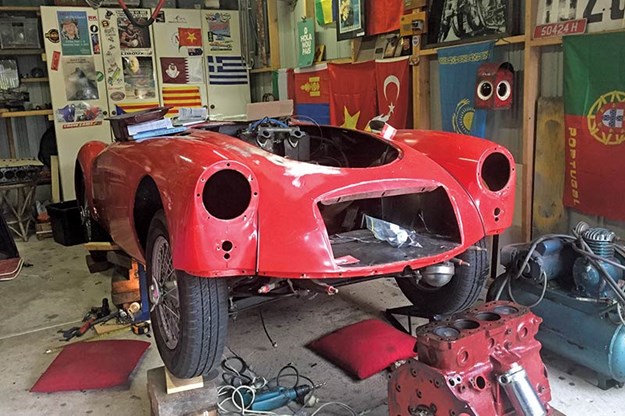
We’ve fitted a five-speed Toyota Celica steel-case gearbox. Fortunately Dellow Conversions still casts a bell-housing to suit. I went for the later gearbox partly to get the extra gear, but more importantly to get synchro on first – that makes a big difference around town. The transmission alone has transformed the way it drives. There’s a broader spread of ratios and you can now sit on 100-110km/h without feeling you’re over-revving it. The highway revs went from around 4100 to about 3200, so it’s a good drop.
Braking is bog stock, which means non-assisted discs up front and drum rears.
| Read next: MGA classic racer
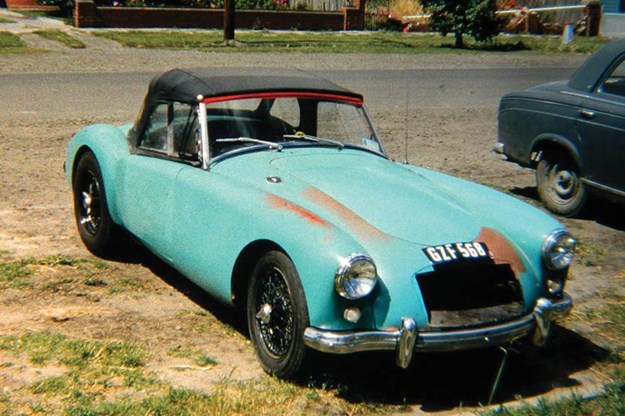
Paul had one of these things decades ago – another work-in-progress!
The suspension design hasn’t changed much since the TD series – standard it’s lever dampers with coils up front and leaf on the rear. I’ve gone for rear Konis.
When it came to paint, I was shocked to discover what a ‘proper’ paint job was going to cost – it was well out of my grasp. Through a friend I discovered Rob who is more low-key and was prepared to work on it for something closer to what I could afford.
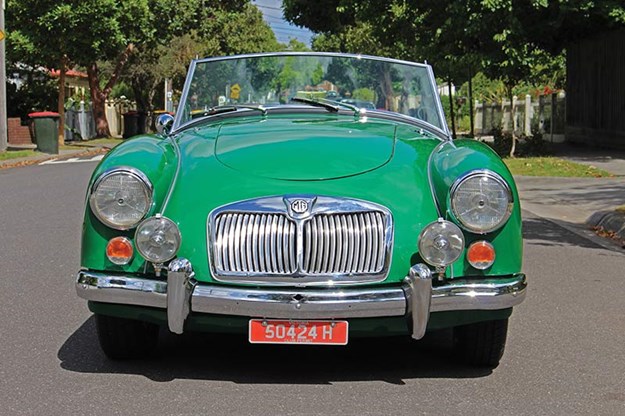
We reckon the period spotlights really finish it off
The car didn’t look all that bad, but once he got under the paint and the bog he discovered there wasn’t a straight stretch of panel on the whole car. I think it had been raced at some stage. It came with a roll bar and showed signs of being abused over a long period.
Rob is a painter rather than a panel beater, but he managed to strip it back to bare metal, take out the worst of the dents and then skim it. Once he finished with the paint, I got on with the reassembly…a few times. I’m never completely happy with the result, so I’ve had a couple of goes at some issues. For example the piping in the front guards wasn’t quite right, so that was redone. And I’ll shortly redo the piping at the back.
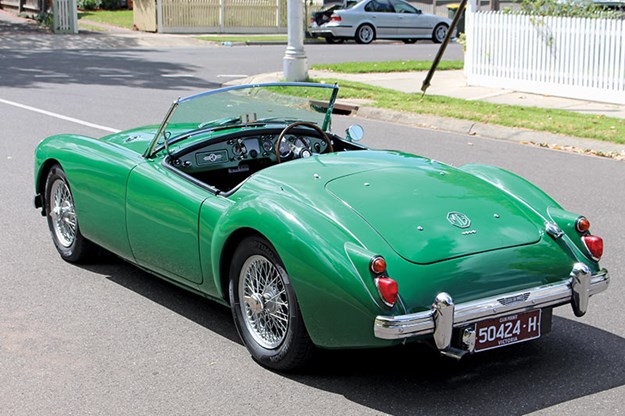
Cleaning up the engine bay was also a bit of a mission. One more job will be to fit a heater system – not just for the warmth in Winter but also to provide some ventilation for your legs and feet in Summer.
The interior was a lot more straight-forward. We got some seat covers from Moss Motors in the UK. They’re vinyl rather than leather, which is what was there originally. For some reason Australia was the only market that didn’t get leather seats. These were assembled locally as a CKD and the seat trim would have been part of the local content.
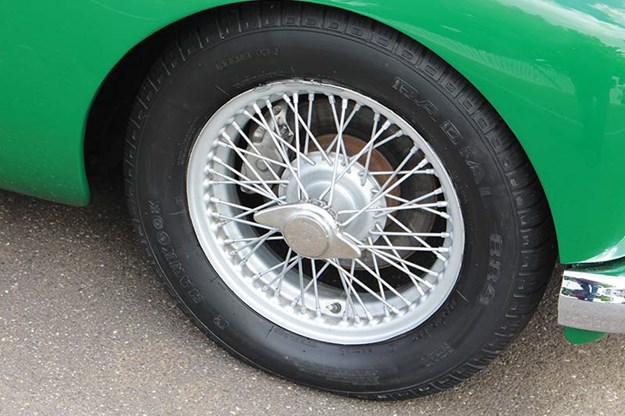
Wire wheels are fiddly, but worth it
Carpets, door cards and infill panels have all been given a going over. That was time-consuming.
Though not very powerful, the MGA stands up pretty well for its era. There are some glorious British cars from this period: Austin Healeys are a good example. They’re certainly much more powerful and exciting, but they’re heavier and more brutish and (I think) not as sweet to drive. Triumph TR3s and 4s are also quicker, but don’t handle as well. (Thanks, Paul, that’s at least two fights started – Ed.)
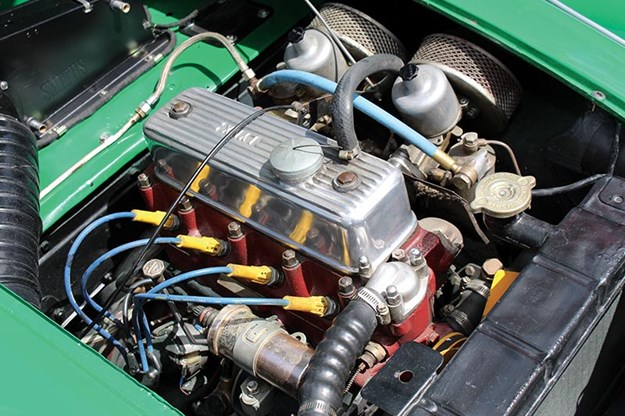
The MGA is particularly sweet to drive, as it’s light and responsive. It’s got rack and pinion steering, plus a disc front end. That said, they’re a long way from being a modern car.
With the later transmission, it all adds up to something that almost anyone should be able to get in and drive – if I let them!
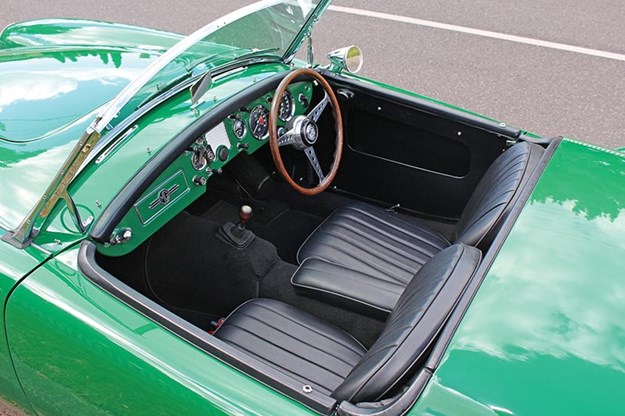
Overall, the approach to the resto worked out well. It meant I could spend money gradually and enjoy the car along the way. To my eyes, it’s a really good-looking thing, but it’s been built very much to drive and definitely not as a show-standard car. That means I can use it and not worry, which to me is a good outcome.
THE RESTO:
Out it comes
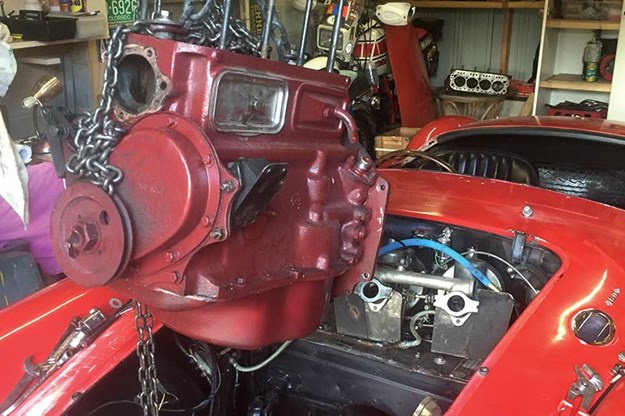
You know things are getting serious when the engine is hauled out.
Hidden sins
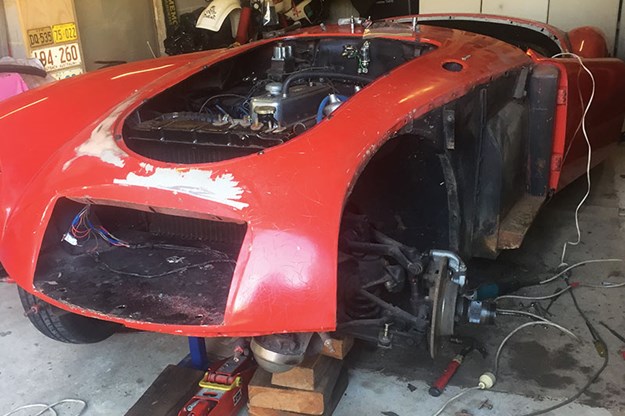
So just what is hiding under that red paint?
Help found
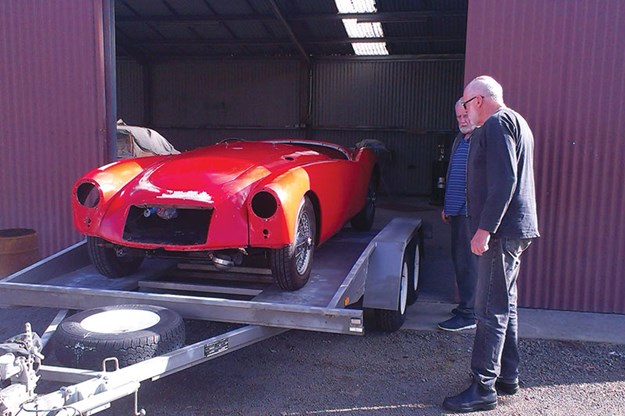
With the cost of a ‘normal’ respray out of reach, Paul found an alternative.
Bare metal
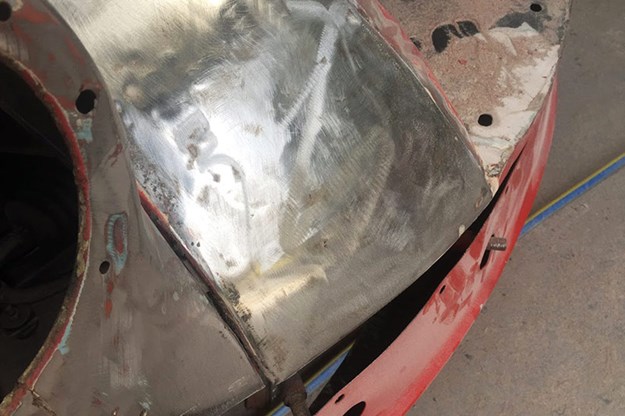
Yep, that’s about as bare as it gets, and there’s a long way to go.
Colourful history
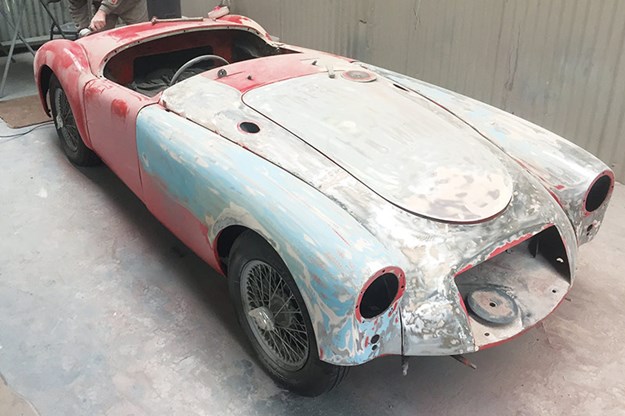
And now we get to see what’s underneath. not pretty.
Race face
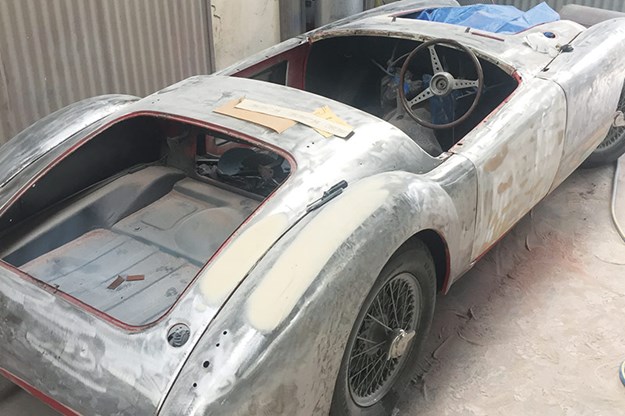
Given all the dents and scrapes, Paul reckons it was raced.
Primer dream
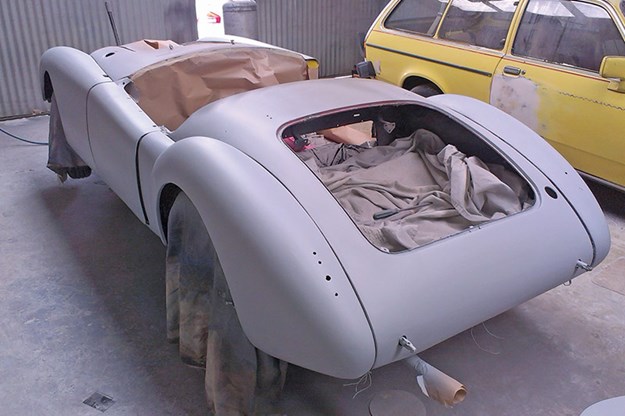
At last, those elegant curves are coming back together.
Mods on the run
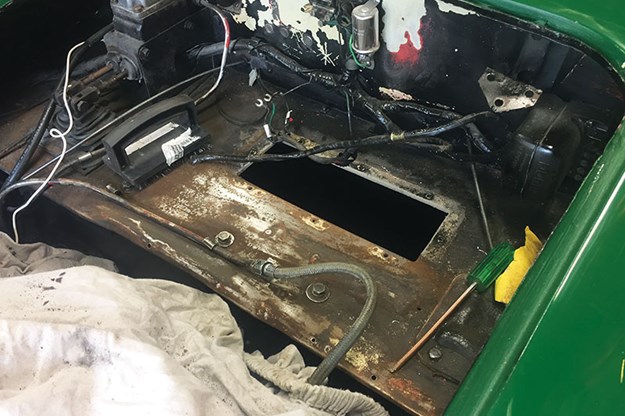
Lots of repairs and some mods on the run – such is the life of a restorer.
Dial me in
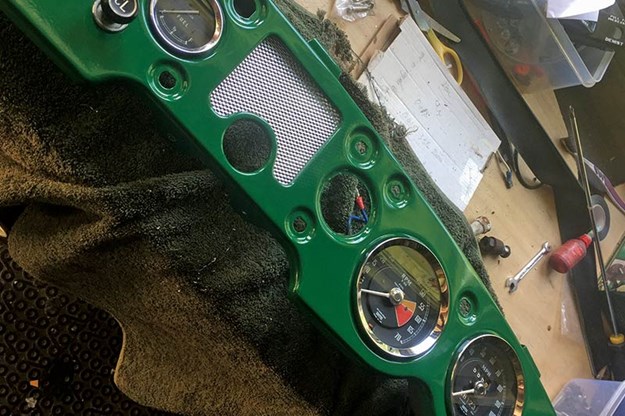
The driver’s eye view is critical, so lots of time was spent here..
Original car: 1961 MGA
Length of restoration: 4-5 years
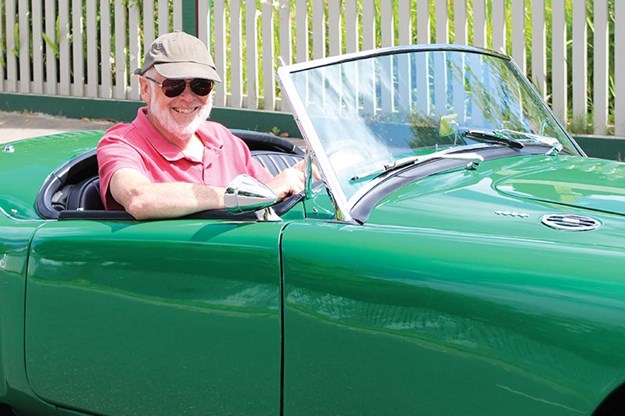
1961 MGA (stock)
Body Steel roadster Engine 1600 inline four
Power 59kw @ 5600rpm
Torque 181Nm @ 3800rpm
Transmission 4 speed manual
Suspension
Front: coils and lever dampers. Rear: leaf springs with lever dampers
Kerb weight 925kg
From Unique Cars #448, January 2021
Unique Cars magazine Value Guides
Sell your car for free right here
Get your monthly fix of news, reviews and stories on the greatest cars and minds in the automotive world.
Subscribe

.jpg)








